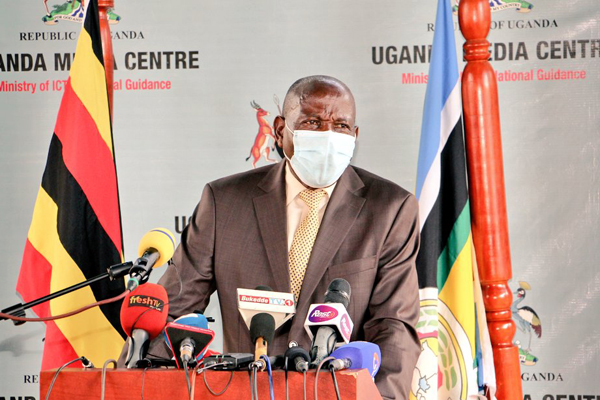Prime
Ugandans don’t believe raising taxes offers improved services

Many Ugandans believe that service delivery has been politicised and is not reflective of the taxes that they pay. PHOTO | Edger R Batte
What you need to know:
- A study commissioned by Friedrich Ebert Stiftung, found that access to public services has been politicised, sidelining a number of people who contribute the largest amount to the national treasury.
- Six in 10 Ugandans, which represents at least 57 percent believe provision of government services has not improved while one-half or 50 percent feel that only the rich can benefit from government services due to influence peddling.
At least seven in 10 Ugandans would oppose introduction or increase of a tax or user fees on the claim of the need to improve public service delivery, according to a report.
In a study commissioned by Friedrich Ebert Stiftung, it was found that access to public services such as roads and infrastructure, health, education and transportation has been politicised, sidelining a number of people who contribute the largest amount to the national treasury.
Therefore, the study, which was conducted by Hatchile Consult, with Mr Francis Kibirige as the managing director and lead researcher in greater Kampala, Bushenyi, Masaka, Kamuli and Gulu, noted that majority of citizens believe the excuse to improve service delivery cannot persuade them to approve an increase or introduction of a new tax or user fees.
The findings contained in the Great expectations: Why Ugandans leave their villages and how they settle in greater Kampala study comes amid a campaign to grow Uganda’s tax to gross domestic product ratio, which recently President Museveni said had stagnated at under 12 percent.
The study, which touches a number of other issues including migration and income distribution, also found that majority of Ugandans or 65 percent feel that access to public services is largely dependent on who has control over power, while nearly half of Ugandans or 46 percent believe that communities that vote against parties that have control over power suffer negative consequences, among which include neglect of effective service delivery.
The study is perhaps supported by various public pronouncements in which a number of government officials including President Museveni have previously warned communities that do not vote for National Resistance Movement candidates of missing out on certain services.
Under Vision 2040 and National Development Plan III, government seeks to achieve improved service delivery to drive citizen satisfaction. However, the study indicates these efforts are being stalled by an increase in theft of public resources and abuse of office by government officials.
The study also found that 55 percent of respondents in urban areas and 54 in rural Uganda feel that government should provide them with services because they are Ugandans while 21 percent said that they should access better services because they pay taxes.
At least 14 percent said it was a constitutional right to access services offered by government.
The survey also found that 82 percent of Ugandans feel that provision of services such as health, roads, electricity and education, among others, should be a responsibility of government, regardless of other factors including to communities that do not vote for those holding power.
While presenting findings of the study in Kampala, Mr Kibirige said a number of Ugandans had been forced to migrate to areas that are associated with better services while others have continued to press for better public goods or given in to fate.
The study, he said, had also found that at least 44 percent of interviewed participants were not in the district where they were born, having migrated in search of opportunities, better services, family reasons and education opportunities.




